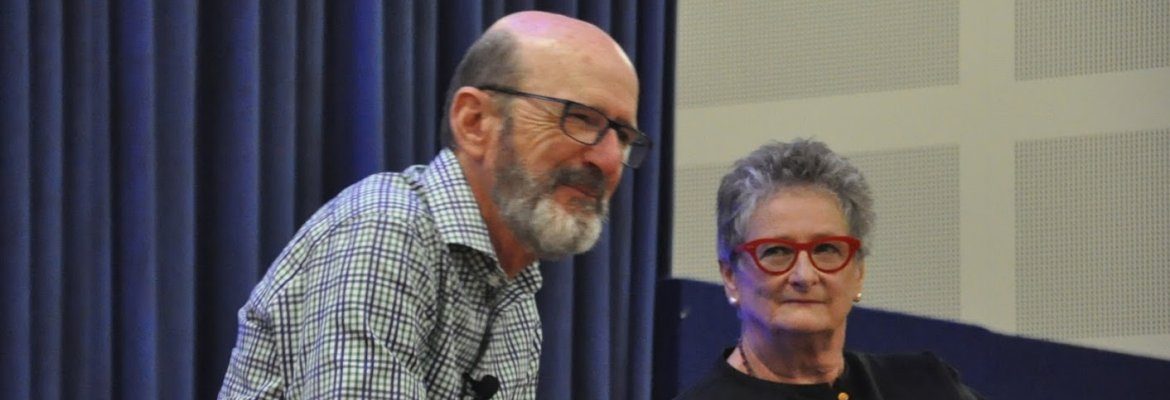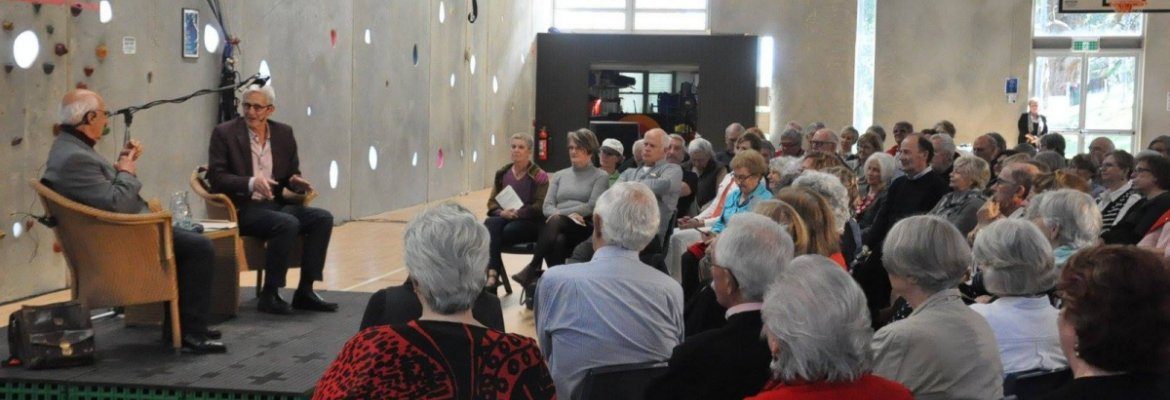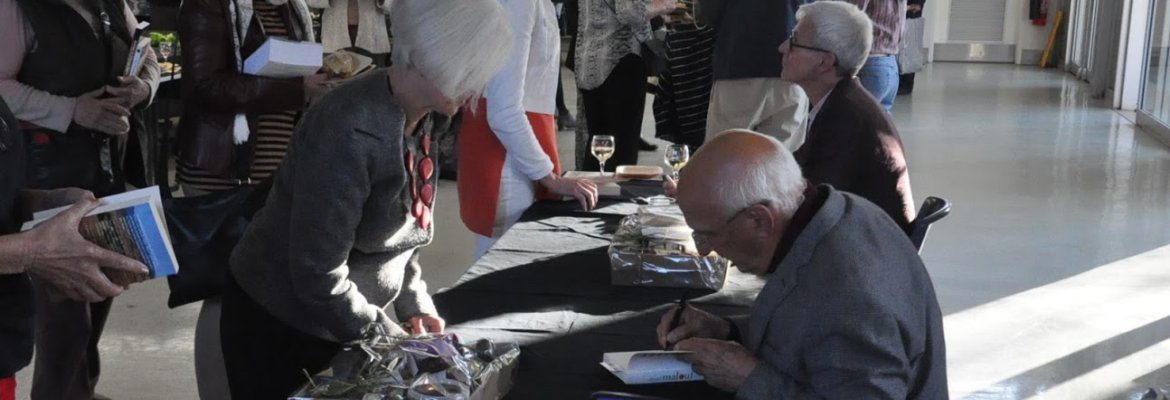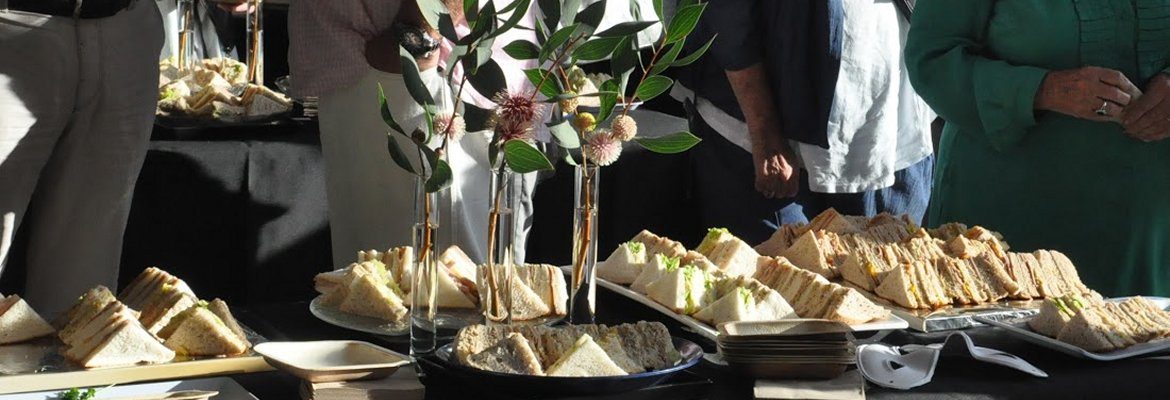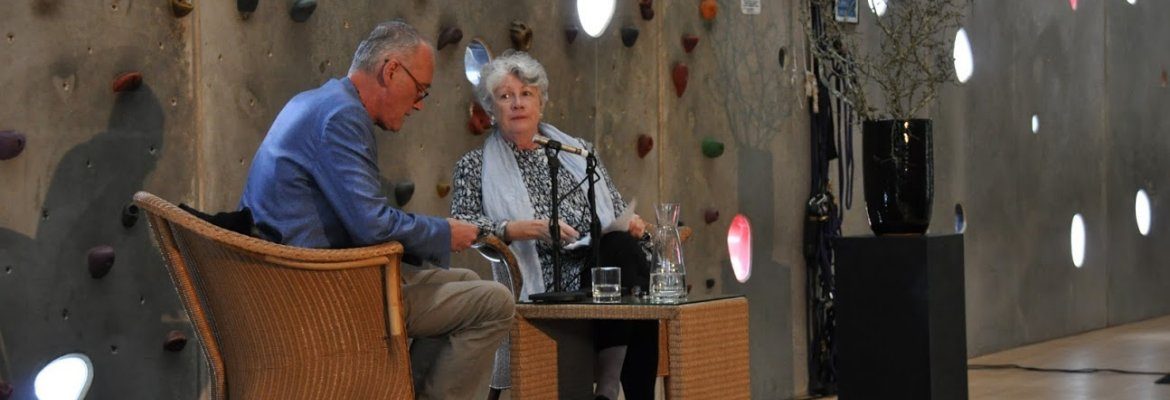Berry Conversation Taster: Campaigner attacks nuclear inquiry’s credibility
Australian Broadcasting Corporation
7.30 Report
TV PROGRAM TRANSCRIPT
Broadcast: 03/07/2006
Reporter: Kerry O’Brien
KERRY O’BRIEN, PRESENTER: Twenty-five years ago, Australian doctor Helen Caldicott was one of the most powerful and compelling figures on America’s public stage. She founded a movement of more than 20,000 physicians and scientists against the nuclear arms race, and even her enemies had to acknowledge the potency of her appeal.
DR HELEN CALDICOTT: Don’t believe what they’re saying, watch what they do.
CHEERING AND APPLAUSE
KERRY O’BRIEN: In one disarmament rally in New York’s Central Park in 1982, something like a million people turned out to
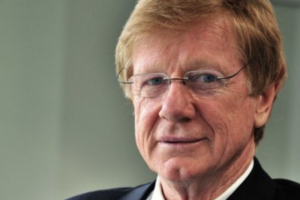
hear her speak. But the end of the Cold War was pretty much the end of the movement, and the one-time Nobel Prize nominee eventually retired to the NSW Central Coast. Yet in recent years, she’s sought to rekindle the spark of protest. And now, as the Australian Government launches its inquiry into the feasibility of nuclear power here, she’s already moved to attack its credibility, with her own launch in Melbourne this week – a book called Nuclear Power is Not the Answer. I spoke with Helen Caldicott at her home near Gosford.
Helen Caldicott, can I begin with, I suppose, the most obvious question. You had an enormous following in the early 80s. The impetus of your campaign tended to peter out as the threat of nuclear holocaust dissipated. You retired to your coastal garden and to spend more time with family. Why the comeback?
DR HELEN CALDICOTT, ANTI-NUCLEAR ACTIVIST: Well, I, too, thought that the risk of nuclear war would just dissipate and go away and the main movers and shakers would get rid of the nuclear weapons and for a while there in the 90s, no-one really knew which direction it was going to take. And then Clinton was elected and Clinton didn’t have the courage to take on the Pentagon. He was scared of them. He just let the matter lie. And now America and Russia still target each other on hair-trigger alert with thousands of nuclear weapons. And I’m trying to set up a conference with the Pentagon at the moment and the White House and the Russians to talk about the fact that we could be blown off the face of the earth tonight. And it’s more serious now than it was at the height of the Cold War.
KERRY O’BRIEN: And yet, you found it very hard to reignite the spark this time round, haven’t you? Why?
DR HELEN CALDICOTT: Because people think the risk’s gone away. They’re practising psychic numbing. Thank God it’s all finished, we’re friendly with the Russians. But the fact is the Russian early warning system doesn’t work and by accident or by terrorist intrusion they could blow up the world tonight.
KERRY O’BRIEN: On nuclear power, on which your book is about to be launched, you say the arguments against nuclear power are overwhelming. You’re not shaken by the fact that some highly-respected global warming campaigners say that the threat of greenhouse is so great that the risks of nuclear power are outweighed by the benefits that nuclear power on a large scale would deliver on greenhouse.
DR HELEN CALDICOTT: What are the benefits it would deliver? The fact is that the nuclear fuel cycle from A to Z, mining, milling, enriching, building the reactor, storing the waste for half a million years, produce a lot of greenhouse gases. So nuclear power, in fact, adds to greenhouse warming, does not detract, does not negate it, adds to it substantially.
KERRY O’BRIEN: But once a nuclear power station is built, it is then not adding to greenhouse, correct?
DR HELEN CALDICOTT: No, but you’ve got to make the fuel, Kerry. You’ve got to enrich the uranium, you’ve got to dig it up and the quality of uranium will be declining rapidly over time and it’s going to produce, use a huge amount of fossil fuel to enrich it. So soon, in a decade or two, a nuclear power plant will produce as much CO2 as a similar sized gas-fired plant. So the argument is fallacious, but the nuclear industry is spending hundreds of millions of dollars to convince people that nuclear power is the answer to global warming, which it’s not.
KERRY O’BRIEN: But some highly credible scientists, eminent scientists, are swayed by the argument.
DR HELEN CALDICOTT: Name them. Which ones?
KERRY O’BRIEN: Well, I’ll tell you. James Lovelock is a powerful environmentalist and scientific voice, isn’t he? When he calls for a massive expansion in the world’s nuclear energy programs because he believes it’s the only option left to stem the rapid advance of the greenhouse threat, I mean, is he dumb on this?
DR HELEN CALDICOTT: He’s off the tracks. I’ve spoken to James Lovelock several times. He thinks that oxygen causes cancer, although he’s a medical scientist. And he said, “Look, the way to heat my house is to put nuclear waste in my basement”. So he wasn’t open to reason or understanding. He’s right on greenhouse warming, absolutely. He’s totally wrong on nuclear power. And nuclear power from a medical perspective will, over time, induce epidemics of cancer and leukaemia and genetic disease forever more. And if he’s a medical scientist he should indeed be concerned about that.
KERRY O’BRIEN: No-one can doubt Tim Flannery’s scientific and environmental credentials. He says James Lovelock has a point on nuclear power. Flannery, too, is coming to see nuclear power as possibly a lesser of evils with regard to greenhouse in Australia.
DR HELEN CALDICOTT: You don’t replace one evil with another, Kerry.
KERRY O’BRIEN: If it’s the lesser of evils?
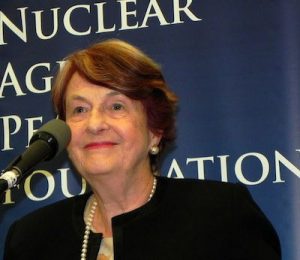
DR HELEN CALDICOTT: It’s not the lesser of evils. The generation of nuclear power is the only electricity generation that can destroy a city. There are two huge nuclear reactors 35 miles from Manhattan. They were targets for the 9/11 terrorists. If one of those goes and the wind blows towards Manhattan, that’s the end of the financial capital of the world.
KERRY O’BRIEN: If all the arguments against nuclear power are as overwhelming as you assert, particularly the economic arguments like the need for massive government subsidies, surely those arguments have to win the day? In which case, what have you got to worry about?
DR HELEN CALDICOTT: Yeah, it’s a good point. I mean, Wall Street is very reluctant to invest in nuclear power. Standard & Poor’s now – they are very allergic to it. And really, it’s a socialised industry. The Energy Bill of 2005 in the US allocated $13 billion to subsidise nuclear power. It can’t operate without huge government subsidies. So it’s a socialised industry and a capitalistic society. And if the government keeps subsidising it, then I guess they can build a few reactors but certainly not enough to make any difference to global warming, not that they will anyway in the long term.
KERRY O’BRIEN: You attack the nuclear industry for propagandising, but haven’t you been guilty of setting out to manipulate your audiences over the years in the way you have sold your case, at times, dare I suggest, to harangue, generate fear, to push your arguments to the limits, to enlist the public to your cause?
DR HELEN CALDICOTT: How?
KERRY O’BRIEN: I’ve seen you give speeches to audiences.
DR HELEN CALDICOTT: And?
KERRY O’BRIEN: I would say promoting fear by painting very fearful cases of the picture that you paint of a nuclear holocaust, the picture that you paint in this interview of nuclear accident, isn’t that pushing at emotions?
DR HELEN CALDICOTT: Kerry, I don’t want the only life in the universe to be destroyed and it’s possible to do that now and it makes me scared and I’m a paediatrician having taken the Hippocratic oath. All the world’s children are potentially my patients. I’m practising global preventative medicine. And so I have to speak the truth. And if it makes people frightened…you know, it’s hard to speak this stuff, because it’s boring, you know, and if you’ve got an audience and you’re giving them fact after fact, they sort of go to sleep. So you have to be an actress, too, to wake them up and get them to face reality. Like getting a person to stop smoking. I’ve done that lots of times by scaring them and they hate me. But you know what, they stop smoking. This is practising preventative medicine.
KERRY O’BRIEN: Coming back to your personal motivation. You say in retirement you became depressed, did you honestly ask yourself whether a part of that depression was simply that you missed the fray?
DR HELEN CALDICOTT: Partly and partly because I’m pretty intuitive to my detriment. And I know what’s happening, I can see what can happen in the future. I’m not good at denial, I’m not.
KERRY O’BRIEN: You’ve talked before about the personal cost to your family of your years of campaigning. What’s been the worst of that personal cost?
DR HELEN CALDICOTT: I lost my marriage.
KERRY O’BRIEN: Worth it?
DR HELEN CALDICOTT: It’s hard to know, really, isn’t it? I mean, it was my destiny to do this work and it kind of still is. I knew from a child that I would do something like this.
KERRY O’BRIEN: But isn’t that – look, I’m not suggesting that this is so in your case, but when a person talks about their destiny, isn’t there a little bit of a danger in that that you kind of can persuade yourself to all sorts of things because you say it’s your destiny?
DR HELEN CALDICOTT: I couldn’t not have done it, Kerry. I read On The Beach when I was 15. And that was the turning – I lost my innocence. I lived in Melbourne. I could feel the bombs exploding shortly after that. We could destroy life on earth. Then I did medicine at the age of 17, I learned about genetics and radiation. It was so obvious to me and Russia and America were blowing up bombs in the atmosphere and the fallout was falling down and Linus Pauling said children would get leukaemia and cancer, medically it’s obvious. Now, I could practise medicine, I could have stayed at Harvard and done really well. I had a great boss. But I could see beyond pouring stuff into test tubes and treating individual patients. What was the use of caring for my patients so carefully if, in fact, they had no future?
KERRY O’BRIEN: And so here you go again?
DR HELEN CALDICOTT: Yeah.
KERRY O’BRIEN: Helen Caldicott, thanks for talking with us.
DR HELEN CALDICOTT: Thanks, Kerry.
Come and hear more on 16 September 2018.
If You Love this Planet: Dr Helen Caldicott
With our next Berry Conversation just weeks away, take some time to watch this Oscar®-winning short film that is comprised of a lecture given to students by our conversationalist, nuclear critic Dr. Helen Caldicott, president of Physicians for Social Responsibility in the USA. Her message is clear: disarmament cannot be postponed. Archival footage of the bombing of Hiroshima and images of its survivors seven months after the attack heighten the urgency of her message.
Kerry O’Brien: It’s war on the ABC so fight
First published in The Australian 14 May 2018
by Stephen Brook Follow on Twitter: @ViscountBrooky
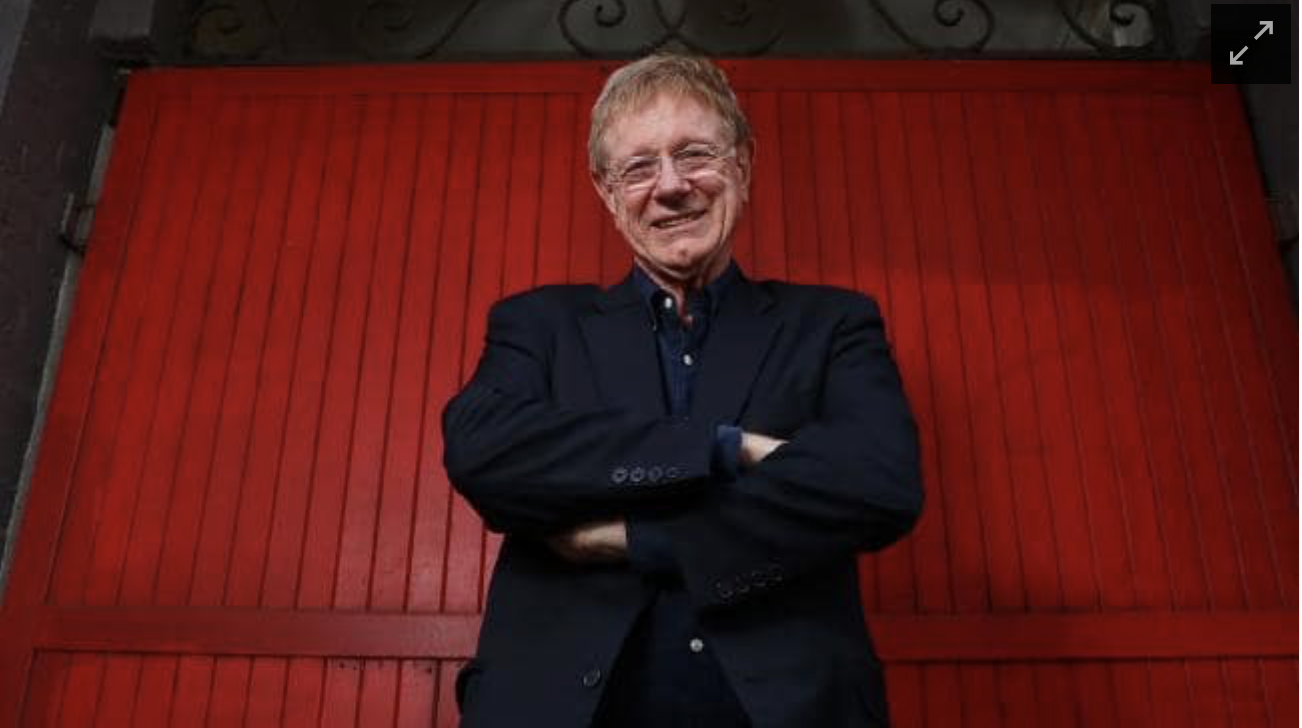
Kerry O’Brien doesn’t miss television. And he doesn’t watch it particularly frequently. But that doesn’t mean he doesn’t have very strong words of advice for the ABC right now.
“I think there is a war on now; I don’t see that this latest cut can be justified,” the 72-year-old journalist tells The Australian’s Behind the Media podcast following the $84 million government budget cuts announced last week.
“The ABC has been hit and it’s been hit and it’s been hit. I lived through the Shier era. I saw it close up, I saw what was behind it. There is a mindset of punishment behind these cuts.”
Jonathan Shier had a controversial tenure running the ABC in 2000 and 2001 before clashing with the board and abruptly departing. But O’Brien, who founded Latelinein 1990, hosted with distinction The 7.30 Report from 1995 to 2010 and then Four Corners until 2015, and who won six Walkleys including the Gold, says the latest cuts are worse than bad news for the ABC.
“I think it’s an insult to the public,” he says. He describes a “very strong band of public support in Australia for public broadcasting” ever since ABC radio started back in the 1930s and an “awful lot of Australians rely on it”. “Politicians would kill to have the trust that the ABC has,” he says.
O’Brien offers a solution to current managing director Michelle Guthrie: fight. “I think that there is a huge responsibility on Michelle Guthrie to get out there and explain to Australians what it means — what it is going to mean inevitably. They have to mobilise their base. And I’m not talking about them becoming a political movement. This is about saving the fundamental nature of public broadcasting in Australia. It is about being true to its people. And I don’t mean the staff; I’m talking about the public.”
O’Brien, who is as compelling answering questions as he was asking them over the decades, says cutting more corners will weaken the ABC. He predicts tough decisions lay ahead.
“You can go on about this and you can sound like a bit of a wanker, but this is a truth. A healthy media is an absolute cornerstone of a healthy democracy. Public broadcasting, I believe, is fundamental to a healthy media. It has played a huge role over many decades contributing to a healthy culture broadly — socially but also politically. I think it’s at risk.”
For this he blames our political classes. O’Brien recalls Malcolm Turnbull approaching him at an ABC function at Parliament House years ago when he was the opposition communications spokesman. “The first words that came out of his mouth were: ‘The ABC is more important today than ever.’ Where is that mindset now? It has disappeared.”
The interview starts with me telling O’Brien that my mum misses him on 7.30. He laughs but then says: “I don’t miss it.”
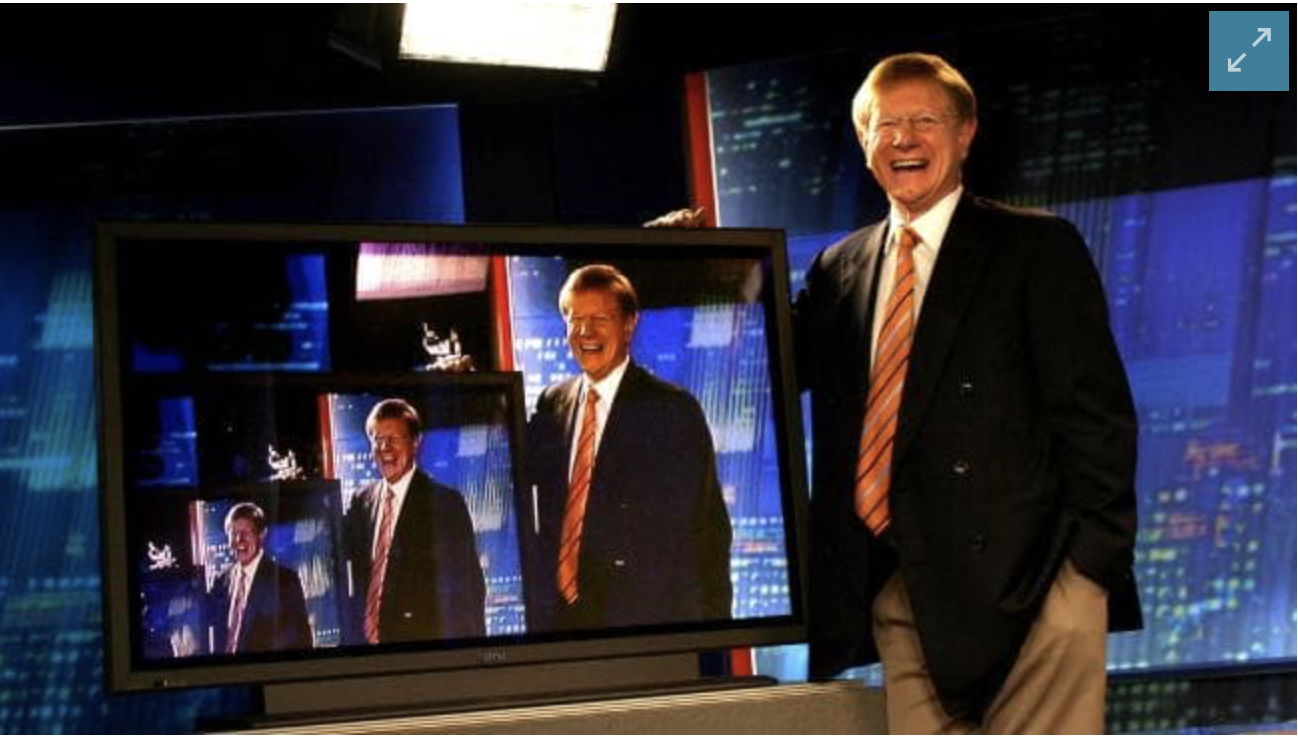
“I don’t miss what became the grind of those interviews, particularly the political ones.”
He would wake up, attempt to build some energy on the morning conference call, groan inwardly at who that night’s political interview was going to be. It felt like Groundhog Day. Mostly this was due to what political interviews had become. “Now I would say it’s as bad and possibly worse. There’s no sense of freshness.”
Most politicians, O’Brien says, approach most interviews in exactly the same way. “They’re there to use them primarily as a platform. They’re there to get the quote-unquote message of the day across, what they think no matter what the question. Sometimes they might go through the veneer of appearing to respect the question and respect the audience’s right to have an answer. But very quickly it’s about the message of the day.”
The rest is a defensive wall.
He tried to head this off at the pass with long questions. “And that was primarily because I was endeavouring to anticipate the flim-flam that was going to come at the start of an answer.”
Not only does he not miss television, he is only an occasional viewer. “To be honest, because I am sick to death of that great wall of noise coming at me. I think that the 24-hour news has simply become a part of the modern reality. But it’s not something I have to engage with and I don’t. I might turn on The Drum if it really interests me and the panellists are interesting. I’ll listen if it is. If there’s no value to it, I’ll quickly move past it.”
An insomniac, O’Brien will log on at 3am and read his daily dose of domestic news and then go back to sleep. Sometimes he will watch the news on ABC and possibly 7.30, but for now he has a big distraction occupying his evenings. That is when he is writing his book. Part memoir, part history, it is about the span of history that his life has coincidentally covered.
“I was born in this five or six days between when the Japanese threw in the towel and when they formally surrendered at the end of World War II, so my life has neatly spanned the whole of the post-war period and that happens to be one of the most momentous if not the most momentous time in history.” The book will examine all that through the prism of his journalism.
Asked to identify his most challenging interviewee, O’Brien immediately nominates former prime minister John Howard. His taking over The 7.30 Report and it becoming a single national program roughly coincided with Howard’s time in office. O’Brien must have interviewed him 100 times. And liked and admired him.
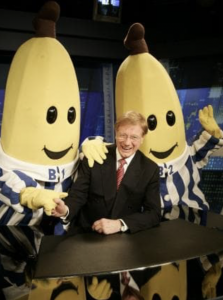
“I think it became almost a sort of point of honour for him to front up on tough occasions and he had the good sense to understand that there was actually something in it for him and being seen to front up. And he became very adept at dealing with those interviews.”
But Howard and the Liberals refused to countenance O’Brien hosting the 1996 leaders debate when the Liberal leader was challenging Labor’s Paul Keating for the prime ministership. They were unhappy with how O’Brien had moderated the previous debate in 1993 between John Hewson and Paul Keating.
O’Brien says Howard wasn’t against the idea but all his advisers were. “We had some interesting conversations around that but he then went out around the electorate during the campaign and bagged me up hill and down dale. So what was said privately and what was said publicly were to some degree two different things.”
But O’Brien is critical of ABC management for trapping itself in the issue. He told them to find someone else before it became a confrontation. The ABC stuck to its guns and the debates went to Nine and Ray Martin. And the infamous worm.
O’Brien might not have been at the time, but he is sanguine now. “There’s no great professional joy in doing them anyway. They very rarely reveal much and they very rarely change the flow of an election.”
O’Brien’s education in Brisbane was “somewhat rudderless” and he worked as a public servant before stumbling into journalism doing some weekend work at Channel 9’s very small newsroom. Day one and he was hooked.
O’Brien recalls: “The sense of adrenalin, the sense of the rush, the chase, the passion that was around you from the other journalists. I’d experienced the atmospherics of all that for about 10 seconds when I realised that that was what I wanted to do with the rest of my life.”
His next move after a cadetship at Nine was a “wonderful provincial newspaper”, The Queensland Times in Ipswich, which he says was “the most fantastic grounding”, sitting in a galvanised shed in 100 degrees covering the local shows. “Typing up 400 or 500 bird and dog and other animal results. And if you made a single mistake the editor would be on your tail the next day because you could be sure that the owner of the particular budgerigar that you got wrong was going to find it and complain.”
O’Brien, who has six adult children, none of whom are journalists, left Sydney when he left The 7.30 Report. He now lives near Byron Bay on the NSW north coast with his wife, former Sydney Morning Herald journalist Sue Javes.
“I don’t miss television. I’m going to take stock when this book is wrapped up, and I’ve got some ideas for documentaries, I’ve got ideas for interviews, but whether I actually do any of them remains to be seen.”
WHO: Journalist and author, Kerry O’Brien in conversation with anti-nuclear campaigner and physician, Dr Helen Caldicott.
WHEN: Sunday 16 September 2018
TIME: 2-4pm
TICKETS ON SALE: 1 July 2018, Berry Music Centre and online through Trybooking

